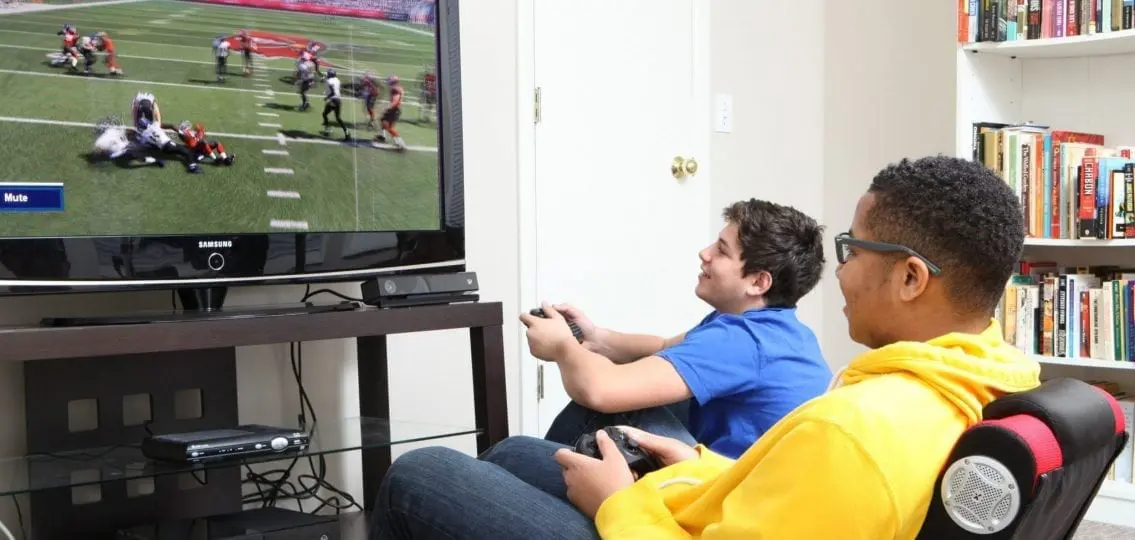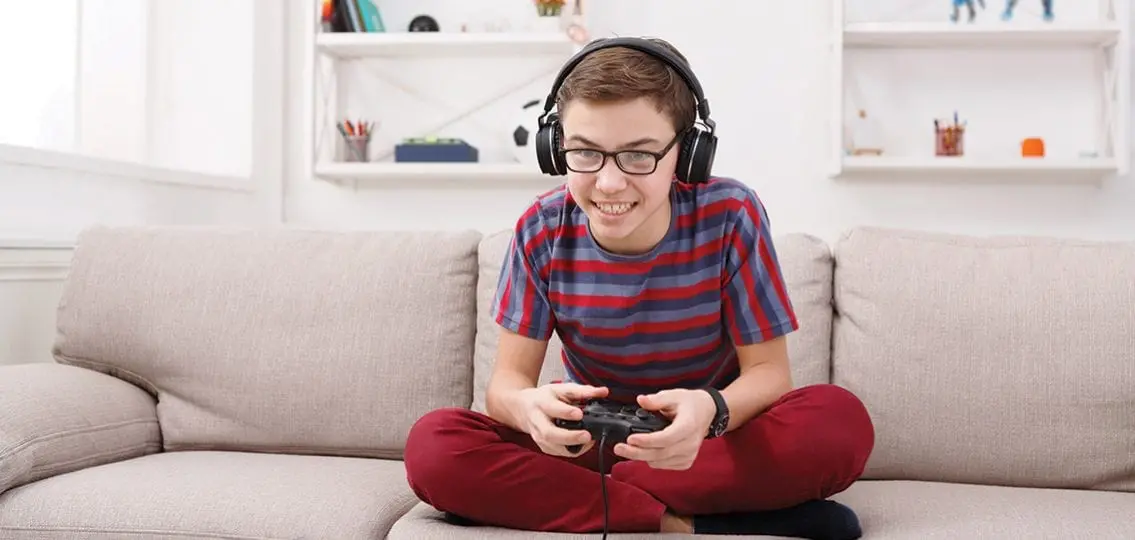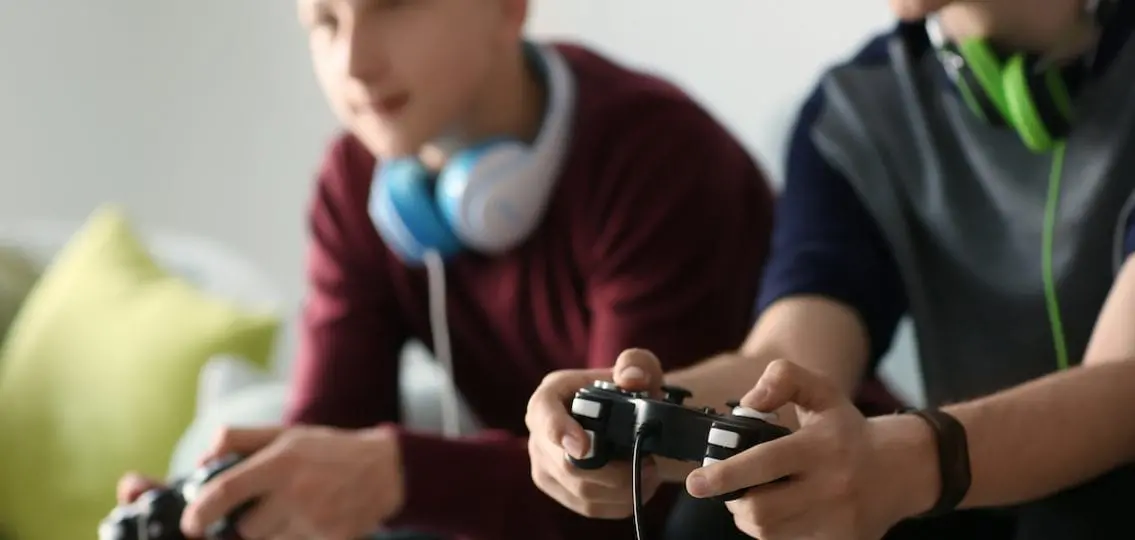Every couple of years, a new video game attracts legions of players, captures media attention, and unnerves parents. In the early 2000s, the game was SOCOM, a video game where players tried their hand at being a Navy SEAL. Now it’s the survival game Fortnite, where the goal is to be the last player standing. Media articles report on kids so into Fortnite that they eschew sleep to play through the night. School districts have even started blocking Fortnite from their wi-fi networks.

It’s understandable for parents to have concerns about excessive gaming, but you might also be surprised to learn that gaming can actually benefit your kids.
Video games aren’t ruining your child’s brain; in fact, gaming is an excellent exercise for your kiddo’s mind—in moderation, of course.
A 2013 study by the American Psychological Association (APA), highlights the many benefits of video game play, separating them into four, distinct categories: cognitive, motivations, emotion, and social.
4 Benefits of Gaming:
1. Improved cognitive function
The interactive nature of video games sets them apart from passive screen activities, like watching television and videos. Games require that players focus their attention, make connections, and react quickly in order to advance. In their study, the APA found that children who play third-person shooter games like Fortnite have benefits such as:
- enhanced visual processing
- increased ability to focus their attention more quickly and accurately
- exhibit and execute quick thinking and response
- experience more efficiency in neural processing
- exhibit an increase in creativity
While you think your teen is in a catatonic state, they’re actually getting one heck of a mental workout!
Video games present kids with problems that need to be solved quickly to advance within a game—we’re talking about split-second decision-making here. Interestingly, children with attention and learning disorders often benefit from gaming. Rapid-fire games require focus to enact problem-solving. They use cognitive skills and functioning that are often difficult for kids with these disorders to harness and master. In fact, just one hour of video game play can increase the brain’s ability to focus.
2. Refined problem-solving skills
Think back to when your child learned to tie their shoelaces or first attempted to ride their bicycle without training wheels. Were they defeated when they couldn’t master the skills immediately? If you have a kiddo who gives up in the face of a challenge, video games may help them develop more of a drive for mastery.
Most people appreciate a reward when they’ve done something right, and video games provide instant gratification for players: achieve the goal and move to the next level. But most video games aren’t that straightforward and players must problem-solve and acquire skills to progress through the game. This progress doesn’t happen without failure. Gaming attracts even those children prone to quitting challenging activities. Games are written to encourage players to fail repeatedly until they master a skill or overcome obstacle. Per the APA study, “Notably, video games use failure as motivational tools and provide only intermittent chances for large-scale success.”
3. Increased self-esteem
The APA also found determined that, “Gaming may be among the most efficient and effective means by which children and youth generate positive feelings.”
I once spent a summer with two of my neighborhood friends attempting to beat a Nintendo game. The process was laborious and marked with highs and lows. Eventually, however, we made it to the end of the game. The experience was thrilling, and each of us felt proud of what we had achieved. Whether or not the skills used in gaming are beneficial in the real world, pride in accomplishment is a fantastic—and important—feeling for adolescents. It’s a feeling easily accessible through video game play.
4. Enhanced social skills
Parents often perceive gaming as a solitary activity. But gaming can actually be highly social, especially for teen boys. According to the Pew Research report Teens, Technology and Friendships, the majority of boys play video games with friends online. Thanks to the internet, our kids aren’t isolated when they’re gaming online, Many of them are navigating skills involving team-building and cooperative play to reach goals and accomplish intricate missions within their games.
While excessive gaming can lead to depression, more recent studies indicate that this isn’t the case when our kids are playing with others. In fact, gaming helps socially-challenged kids develop friendships they wouldn’t have otherwise formed, and provides opportunities for connection and inclusion.

Moderation is key.
I would be remiss if I didn’t mention that spending an unhealthy amount of time gaming potentially nullifies any of the benefits mentioned above. What is a healthy amount of time? Well, the American Academy of Pediatrics currently recommends no more than two hours of sedentary screen time per day. The AAP leaves the actual amount of time to parental discretion. Check out the AAP for more specific guidelines regarding adolescents and screen time, including a helpful outline for drafting a family media use plan.



